29 Species, Including Those Endangered, Have Been Rescued From Wildlife Trafficking & Returned To The Wild In Guatemala
Photos by: Santiago Bill/AP Images for HSUS
Twenty nine mammals and birds have been released back into the wild in the Guatemalan rainforest after being rescued and rehabilitated from illegal wildlife trafficking and animal cruelty.
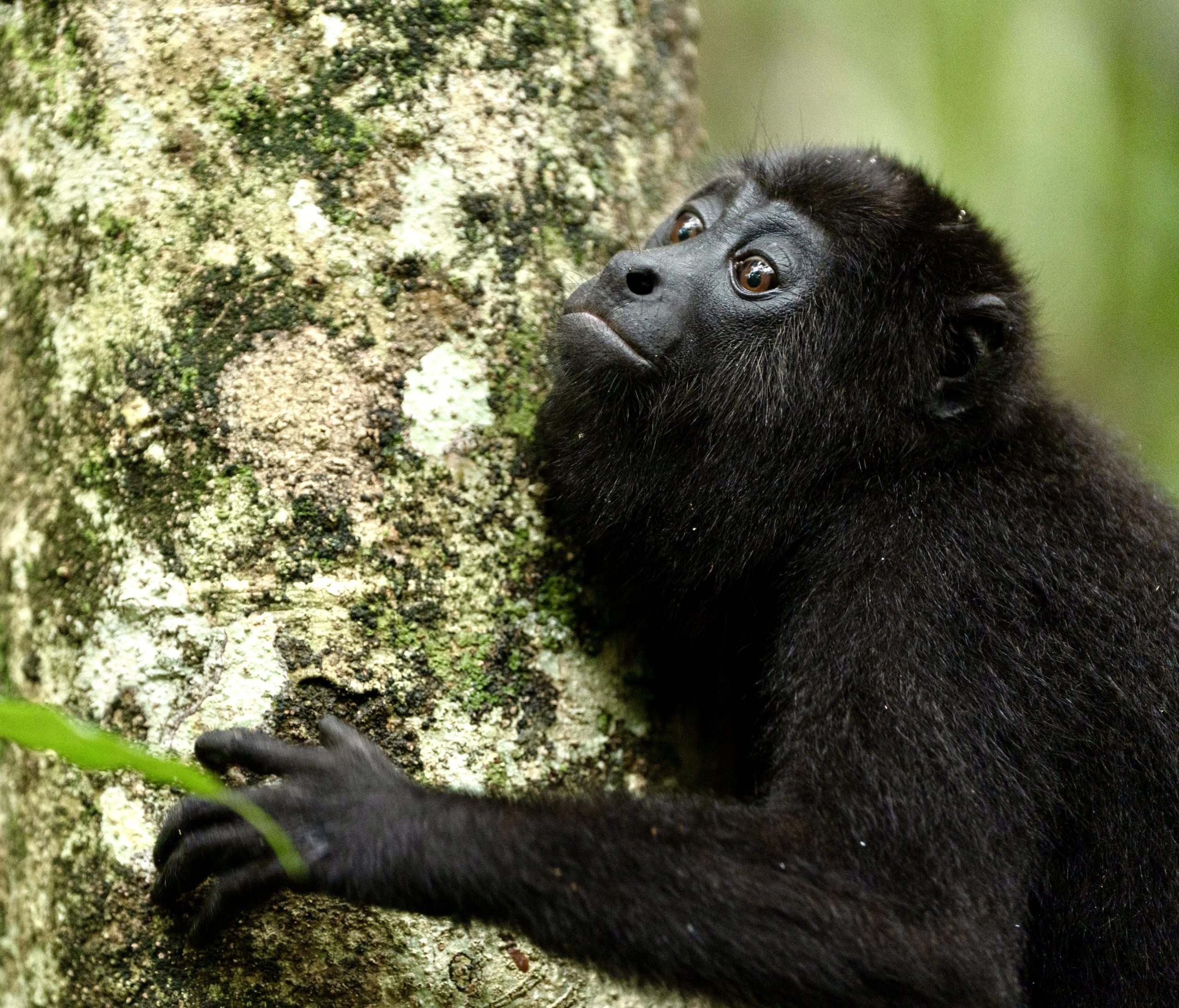
Non-governmental organizations Asociacion Rescate y Conservacion de Vida Silvestre (ARCAS) and Humane Society International (HSI)/Latin America released the animals in the 13.3 million-acre Maya Biosphere Reserve in Petén, as part of a long-running joint project to tackle wildlife trafficking for the pet trade and other exploitative human activities.
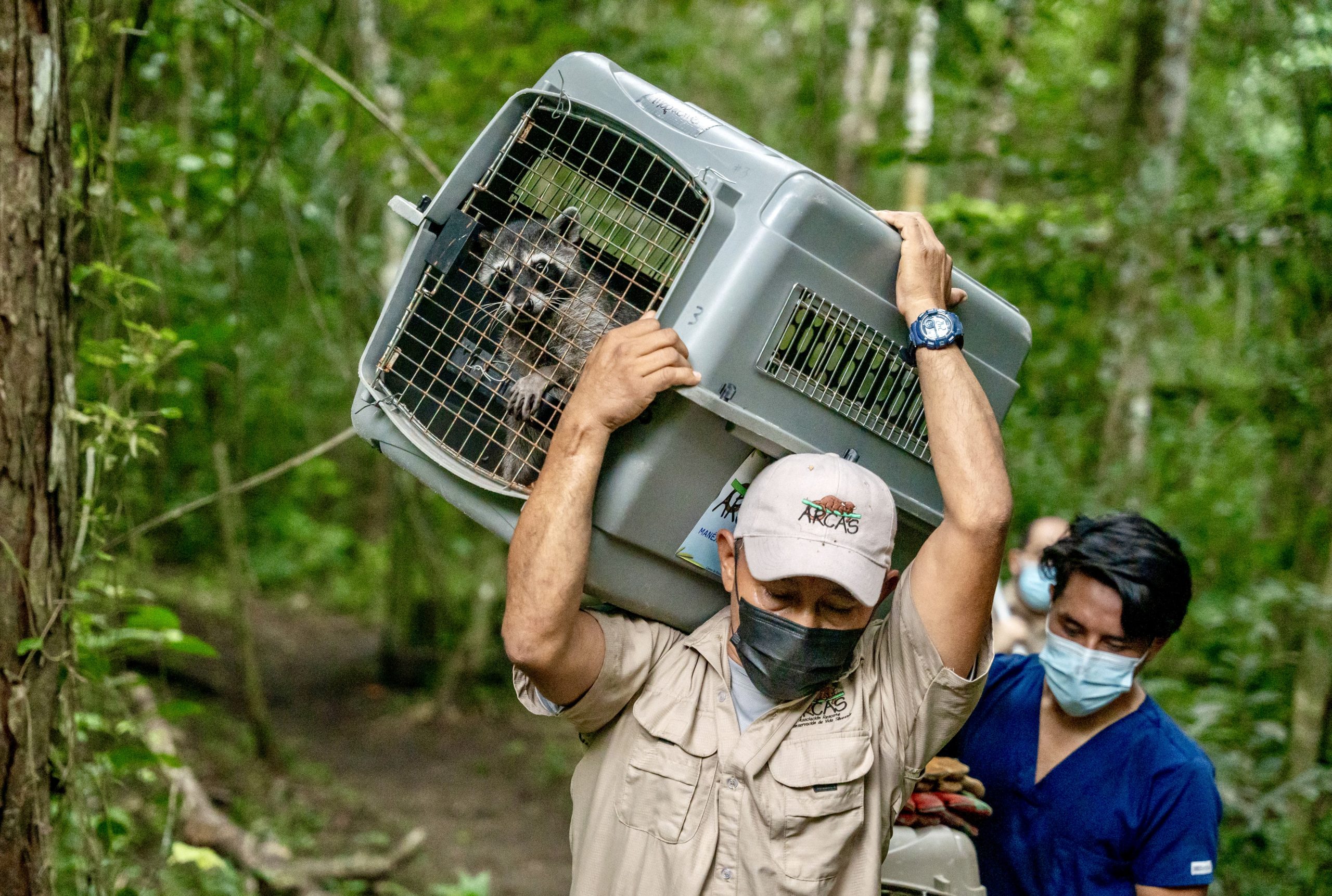
The animals include two endangered wild cats―a jaguarundi and margay―three endangered black howler monkeys, two endangered spider monkeys, and several birds, including an emerald toucanet.
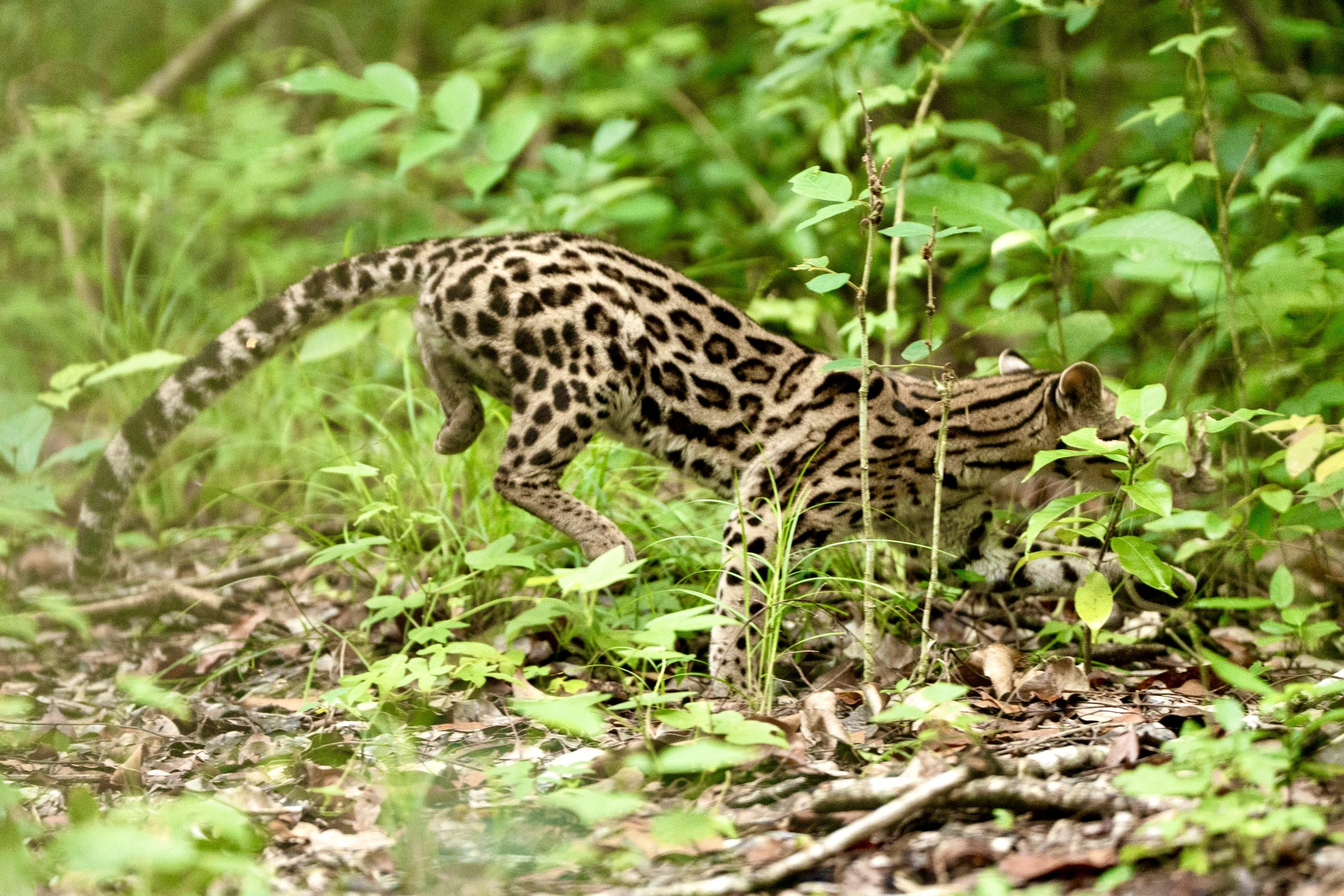
Many of the animals, including a tayra and a screech owl, arrived at the ARCAS sanctuary as juveniles, their mother having likely been killed by traffickers or hunters. The rehabilitation process included teaching them the skills they need to survive in the wild, such as how to fly, jump, run, hide from predators, and identify and hunt for food. While the margay, jaguarundi, howler and spider monkeys are classified as Category 2: Endangered in Guatemala under national protection legislation, others species―such as the opossum and bat falcon―are impacted by habitat loss due to deforestation for farming and by negative interactions with humans.
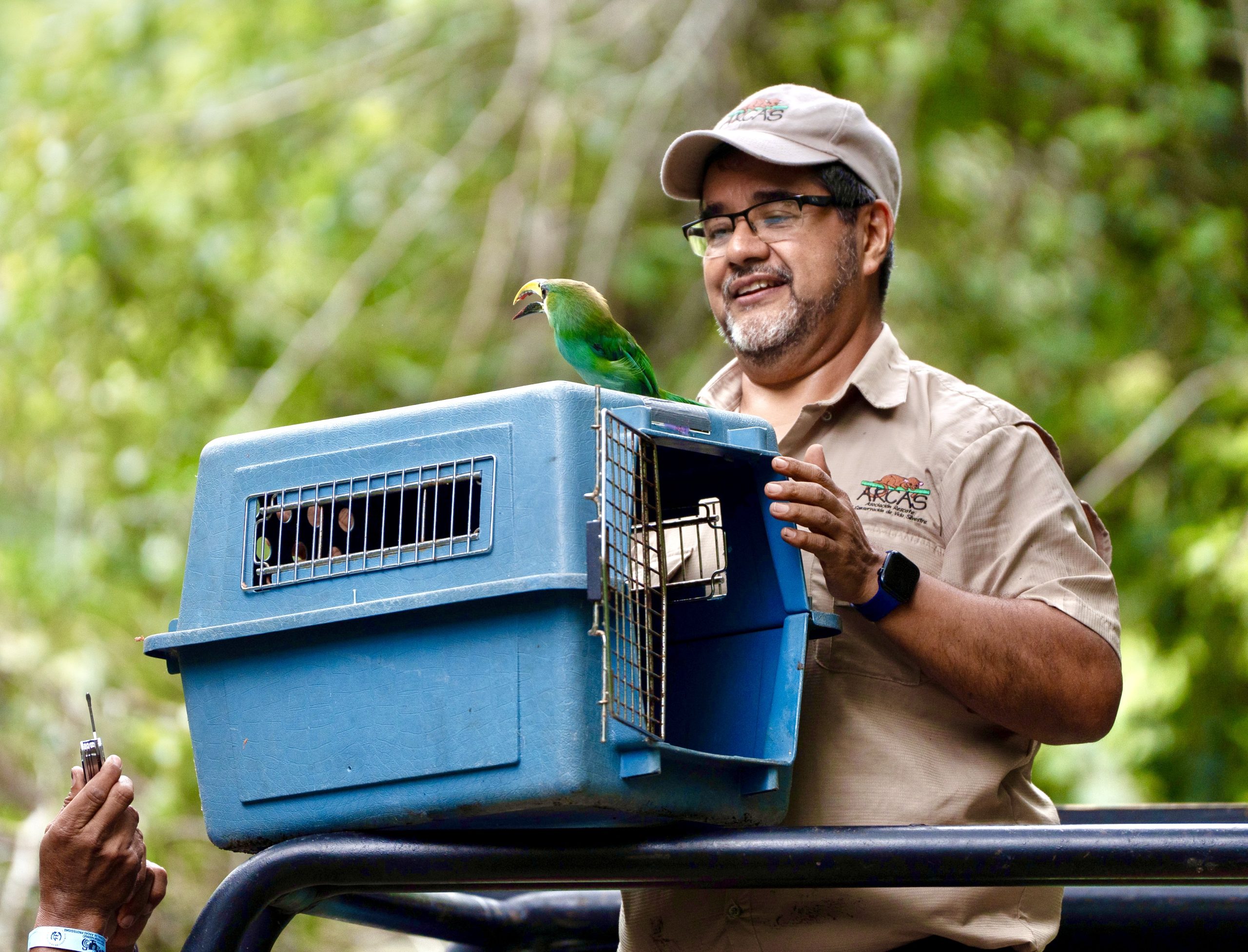
Imperilled species are highly valued in the wildlife trade because of their rarity, leading to overexploitation and black-market trade, pushing some of these species further toward extinction. The rehabilitation of these animals is essential to strengthen the populations of endemic and endangered species in the Maya Biosphere Reserve, which have been considerably depleted in their natural habitats. For example, three black howler monkeys were among those released by ARCAS and HSI/LA, the oldest male having been kept as a pet for four months prior to rescue, while the females were rescued from the pet trade without having suffered prolonged captivity.
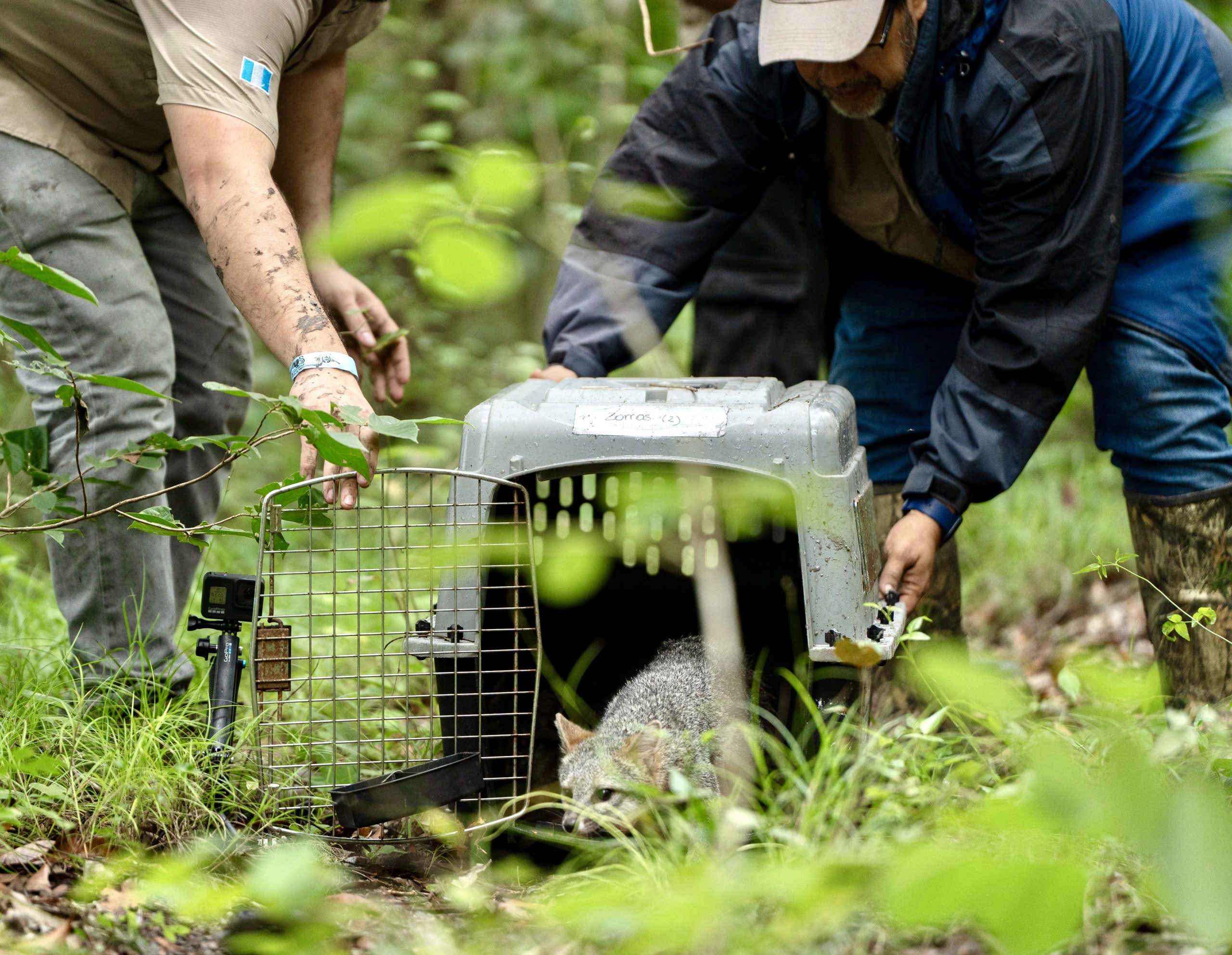
“The capture of wild animals for the national and international pet trade is a real problem in Guatemala,” said Andrea Borel, executive director of Humane Society International/Latin America, who was present for the rainforest release. “These animals are often kept in cramped, inadequate conditions not suitable for their species, and denied the ability to exhibit their natural behaviors which can further cause them physical and psychological distress.
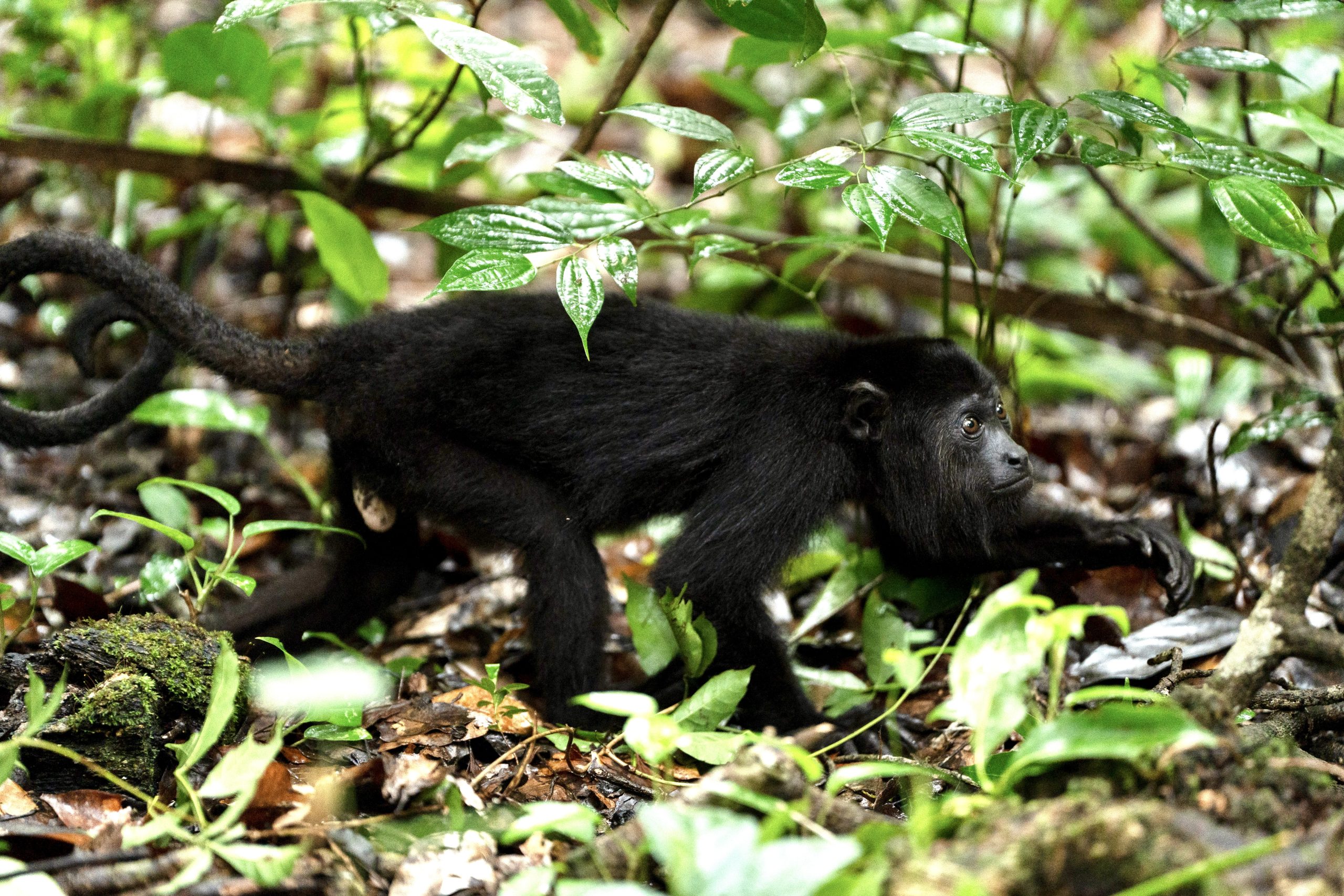
“For every wild animal kept as a pet, it’s also likely that several others will have died, including their mother who is often killed while trying to protect her babies from traffickers. As many of these species also contend with the ever-increasing pressure of habitat loss, it’s a real concern for our wild ecosystems,” continued Borel.
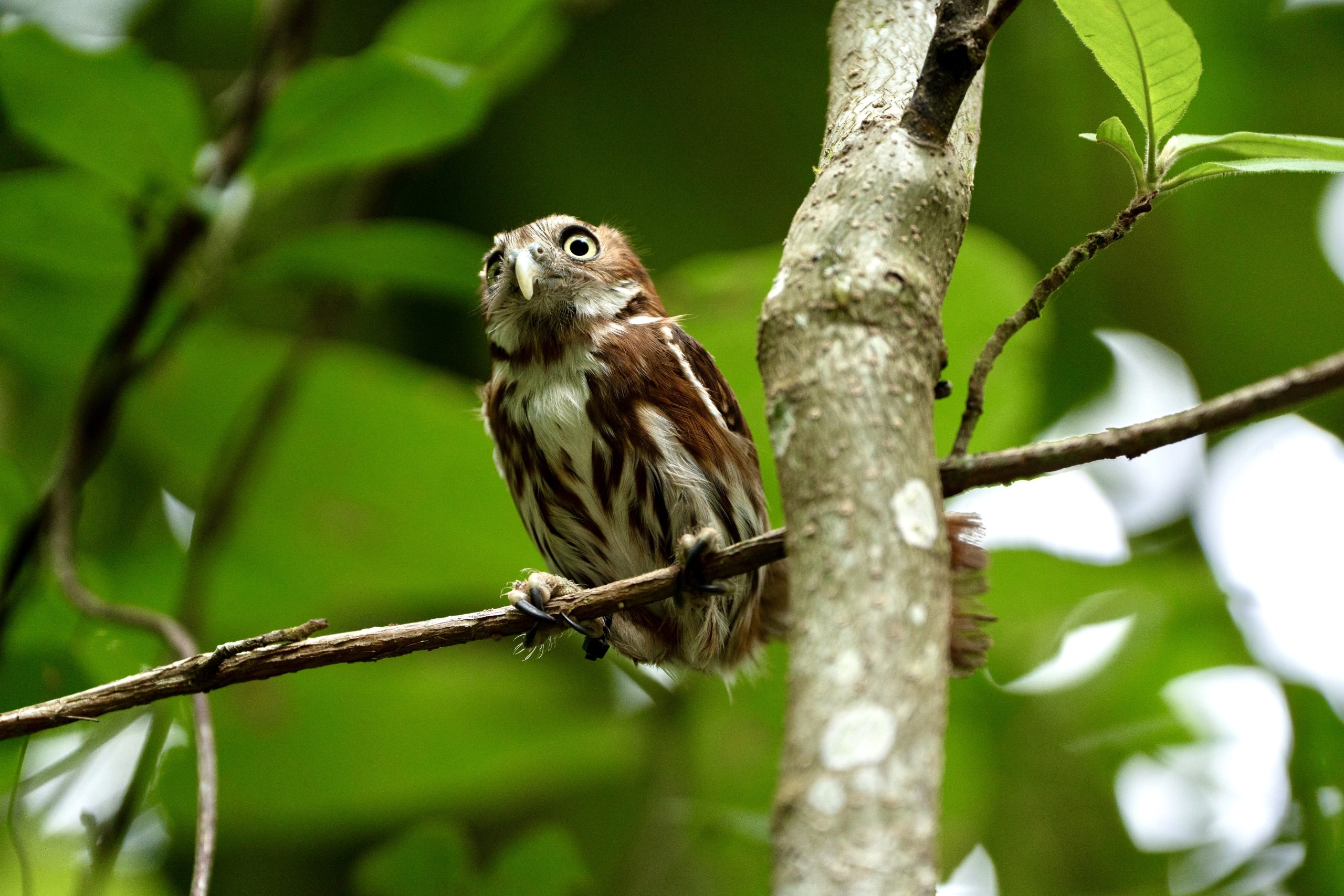
“By supporting and working with our local partner, ARCAS, this rescue, rehabilitation, and release program is giving these animals back their freedom, as well as increasing their wild populations to ensure future breeding in their natural forest habitat where they belong,” concluded Borel. “We also work together on raising awareness to urge citizens not to buy wild animals as pets and to help us by reporting any such suspicious activity to the authorities.”
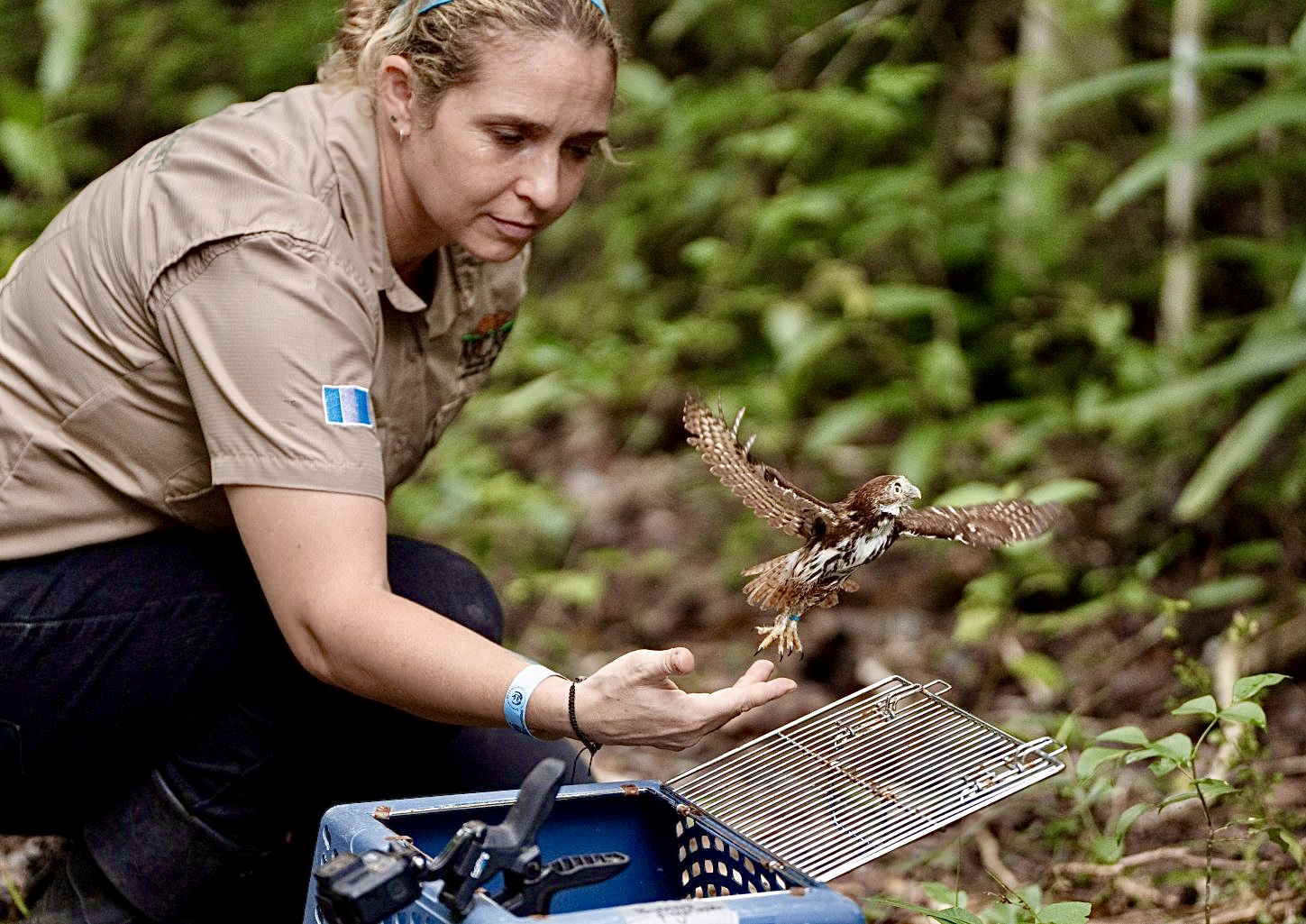
ARCAS carries out the physical, medical, and behavioral rehabilitation of victims of wildlife trafficking and exploitative human activities under strict scientific management standards. HSI/Latin America and ARCAS have been working together in wildlife protection and conservation in Guatemala since 2004.
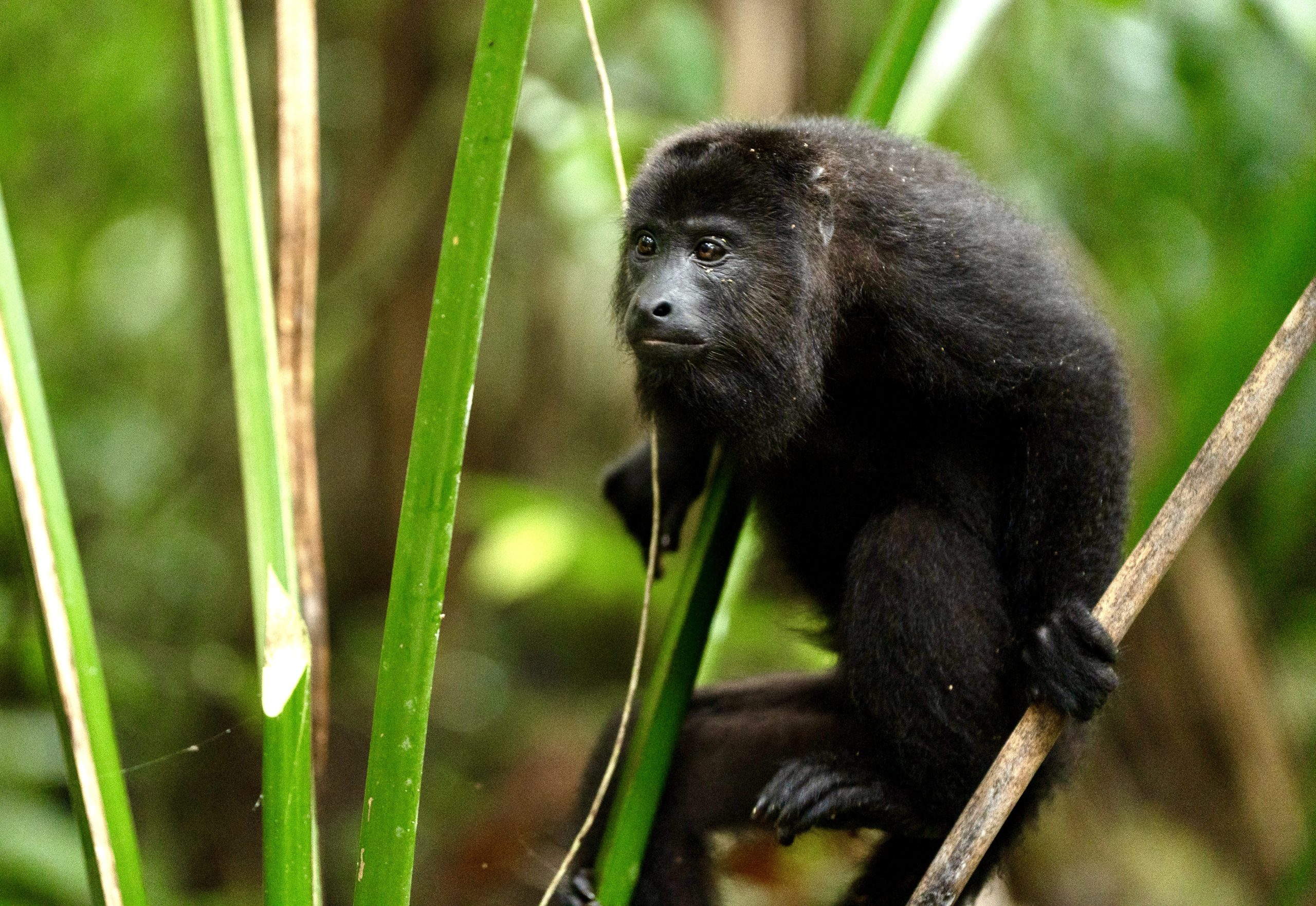
The release was conducted with the authorization of Guatemalan authorities from the National Council for Protected Areas (CONAP). The Maya Biosphere Reserve is in the northern Petén region of Guatemala, part of the Mesoamerica’s Maya Forest, the second largest remaining tropical rainforest in the Americas.
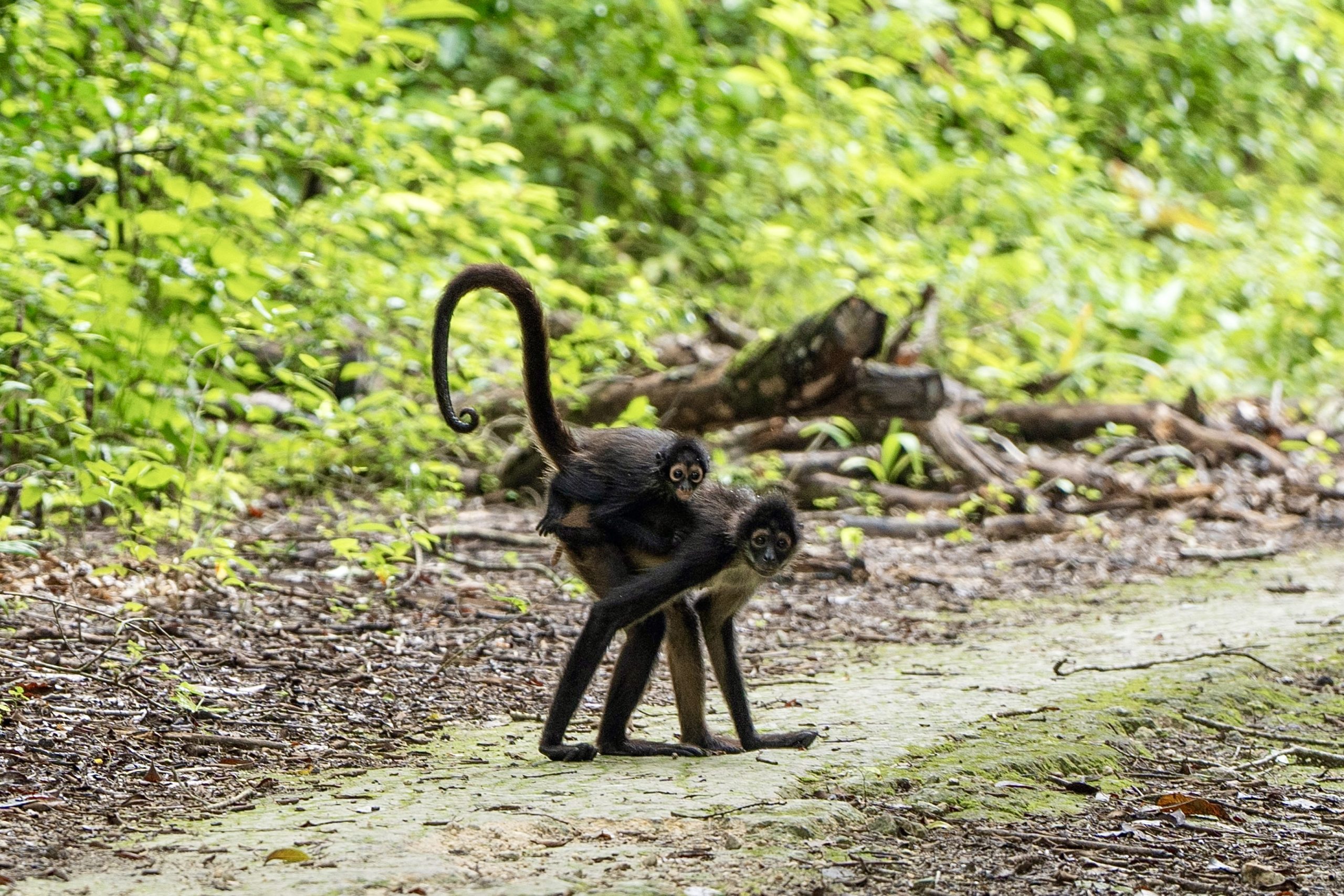
“Our mission is to reinforce existing wildlife populations, to prevent the extinction of species and thus ensure that there are healthy populations capable of adapting and reproducing in their natural habitat,” said ARCAS director Fernando Martinez. “We are proud that our rescue center is a pioneer in endemic species rehabilitation and release in our region, and we appreciate HSI/Latin America’s support.”
